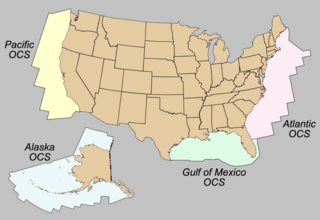Related Research Articles

The United States Department of Health & Human Services (HHS), also known as the Health Department, is a cabinet-level executive branch department of the U.S. federal government with the goal of protecting the health of all Americans and providing essential human services. Its motto is "Improving the health, safety, and well-being of America". Before the separate federal Department of Education was created in 1979, it was called the Department of Health, Education, and Welfare (HEW).

Her Majesty's Home Civil Service, also known as Her Majesty's Civil Service or the Home Civil Service, is the permanent bureaucracy or secretariat of Crown employees that supports Her Majesty's Government, which is composed of a cabinet of ministers chosen by the Prime Minister of the United Kingdom of Great Britain and Northern Ireland, as well as two of the three devolved administrations: the Scottish Government and the Welsh Government, but not the Northern Ireland Executive.
The United States has eight federal uniformed services that commission officers as defined by Title 10 and subsequently structured and organized by Title 10, Title 14, Title 32 and Title 42 of the U.S. Code.

The International Trade Administration (ITA) is an agency in the United States Department of Commerce that promotes United States exports of nonagricultural U.S. services and goods.

The Code of Federal Regulations (CFR) is the codification of the general and permanent rules and regulations published in the Federal Register by the executive departments and agencies of the federal government of the United States. The CFR is divided into 50 titles that represent broad areas subject to federal regulation.
A health department or health ministry is a part of government which focuses on issues related to the general health of the citizenry. Subnational entities, such as states, counties and cities, often also operate a health department of their own. Health departments perform food inspections and other health related inspections, vaccination programs, free STD and HIV tests, tobacco enforcement and cessation programs, and other medical assistance programs. Health departments also compile statistics about health issues within their area. The role of a health department may vary from one country to the other, but their primary objective is always the same; safeguarding and promoting health. In 1986, several of the world's national health departments met to establish an international guideline by which health departments operate. The meeting was in Ottawa, Ontario, Canada, and hence the guidelines established are known as the Ottawa Charter. The Ottawa Charter was designed to 'achieve Health for All'.
A law enforcement officer (LEO), or peace officer in North American English, is a public-sector employee whose duties primarily involve the enforcement of laws. The phrase can include police officers, municipal law enforcement officers, special police officers, customs officers, state troopers, special agents, secret agents, special investigators, border patrol officers, immigration officers, court officers, probation officers, parole officers, arson investigators, auxiliary officers, game wardens, sheriffs, constables, corrections, marshals, deputies, detention officers, correction officers, and public safety officers. Security guards are civilians and therefore not law enforcement officers, unless they have been granted powers to enforce particular laws, such as those accredited under a community safety accreditation scheme such as a security police officer.

The Lyndon B. Johnson School of Public Affairs is a graduate school at the University of Texas at Austin that was founded in 1970 to offer professional training in public policy analysis and administration for students interested in pursuing careers in government and public affairs-related areas of the private and nonprofit sectors. Degree programs include a Master of Public Affairs (MPAff), a mid-career MPAff sequence, 16 MPAff dual degree programs, a Master of Global Policy Studies (MGPS), eight MGPS dual degree programs, an Executive Master of Public Leadership, and a Ph.D. in public policy.

The Employee Benefits Security Administration (EBSA) is an agency of the United States Department of Labor responsible for administering, regulating and enforcing the provisions of Title I of the Employee Retirement Income Security Act of 1974 (ERISA). At the time of its name change in February 2003, EBSA was known as the Pension and Welfare Benefits Administration (PWBA). Prior to January 1986, PWBA was known as the Pension and Welfare Benefits Program.
The California Code of Regulations is the codification of the general and permanent rules and regulations announced in the California Regulatory Notice Register by California state agencies under authority from primary legislation in the California Codes. Such rules and regulations are reviewed, approved, and made available to the public by the Office of Administrative Law (OAL), and are also filed with the Secretary of State.

The California Environmental Protection Agency, or CalEPA, is a state cabinet-level agency within the government of California. The mission of CalEPA is to restore, protect and enhance the environment, to ensure public health, environmental quality and economic vitality.

The Deputy Secretary of Health and Human Services is the chief operating officer of the United States Department of Health and Human Services. The Deputy Secretary oversees all operations within the Department, including overseeing Medicare, Medicaid, public health, medical research, food and drug safety, welfare, child and family services, disease prevention, Indian health, and mental health services. The incumbent Deputy Secretary is Eric Hargan.

The Outer Continental Shelf (OCS) is a peculiarity of the political geography of the United States. The OCS is the part of the internationally recognized continental shelf of the United States which does not fall under the jurisdictions of the individual U.S. states.
The Annotated Code of Maryland, published by The Michie Company, is the official codification of the statutory laws of Maryland. It is organized into 36 named articles. The previous code, organized into numbered articles, has been repealed.
In the United States, the licensing of prehospital emergency medical providers and oversight of emergency medical services are governed at the state level. Each state is free to add or subtract levels as each state sees fit. Therefore, due to differing needs and system development paths, the levels, education requirements, and scope of practice of prehospital providers varies from state to state. Even though primary management and regulation of prehospital providers is at the state level, the federal government does have a model scope of practice including minimum skills for EMRs, EMTs, Advanced EMTs and Paramedics set through the National Highway Traffic Safety Administration (NHTSA).
In the [United States] there is no federal law regulating the practice of [tattooing]. However, all 50 states and the District of Columbia have statutory laws requiring a person receiving a tattoo be at least 16 years old. This is partially based on the legal principle that a minor cannot enter into a legal contract or otherwise render informed consent for a procedure. Most states permit a person under the age of 18 to receive a tattoo with permission of a parent or guardian, but some states prohibit tattooing under a certain age regardless of permission, with the exception of medical necessity.
An Emergency Use Authorization (EUA) in the United States is an authority granted to the Food and Drug Administration (FDA) under sections of the Federal Food, Drug, and Cosmetic Act as added to and amended by various Acts of Congress, including by the Pandemic and All-Hazards Preparedness Reauthorization Act of 2013 (PAHPRA). It does not constitute approval of the drug in the full statutory meaning of the term, but instead authorizes FDA to facilitate availability of an unapproved product, or an unapproved use of an approved product, during a declared state of emergency from one of several agencies or of a "material threat" by the Secretary of Homeland Security.

The New York State Department of Family Assistance (DFA), also known as the Department of Family Services, is a department of the New York state government. Its regulations are compiled in title 18 of the New York Codes, Rules and Regulations.

The law of New York consists of several levels, including constitutional, statutory, regulatory and case law, and also includes local laws, ordinances, and regulations. The Consolidated Laws form the general statutory law.
The law of Texas is derived from the Constitution of Texas and consists of several levels, including constitutional, statutory, and regulatory law, as well as case law and local laws and regulations.
References
- 1 2 "Administrative Code". Texas Secretary of State. Retrieved 2020-11-27.
- ↑ Hochberg, Nelson. "Bill Analysis - H.B. 2304". Texas Legislature Online. Senate Committee Report. Retrieved 2020-11-27.
- ↑ "Texas Administration Code Viewer". Office of the Secretary of State of Texas. Retrieved 2020-11-27.